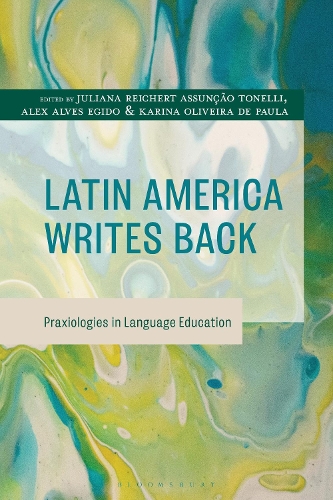
Latin America Writes Back: Praxiologies in Language Education
(Hardback)
Publishing Details
Latin America Writes Back: Praxiologies in Language Education
By (Author) Juliana Reichert Assuno Tonelli
Edited by Alex Alves Egido
Edited by Karina Oliveira de de Paula
Bloomsbury Publishing PLC
Rowman & Littlefield Publishers
2nd October 2025
United States
Classifications
Professional and Scholarly
Non Fiction
Language teaching and learning: second or additional languages
History of education
Physical Properties
Hardback
208
Width 152mm, Height 229mm
Description
In Latin America, and other historically exploited former colonies, people were told to unlearn their language and culture in order to acquire what some privileged voices classify as valid or legitimate ways of thinking.
Throughout history, various teaching approaches and methodologies have emerged, each bringing unique insights to foreign language classrooms all over the world. These methods have played a pivotal role in shaping language pedagogy, enhancing learners' experiences, and fostering communication in an increasingly interconnected world. As societies become aware of the need for cultural inclusivity and equity, educators are recognizing the importance of adopting praxiologies that honor diverse languages and perspectives.
In the last couple of years, language educators have seen an unprecedented expansion of discussions related to the questioning of naturalized practices in language education. Nowadays, these questions are the core of language teacher education programs in Latin America. Educators have developed and implemented another way experiencing and assessing language education; one that is not focused on the mere application of predetermined methods and techniques, but that is born fromand sensitive tothe local contexts, and which considers context-dependent struggles, hopes, needs, and agency (or lack thereof). In such a manner, the concept of praxiologies seems to be central, as understood by Paulo Freire as the inseparable connection between action and reflection. In the context of Latin American language education, praxiologies refer to the constant action-reflection that extends beyond the implementation of pre-determined methods and techniques created by those who have never interacted with the local contexts.
Author Bio
Juliana Reichert Assuno Tonelli is Tenured Professor at the State University of Londrina, Brazil.
Alex Alves Egido is Professor at the Federal University of Maranho, Brazil.
Karina Oliveira de Paula is a PhD candidate in Curriculum and Instruction (Language Diversity and Literacy Studies) at Texas Tech University.
